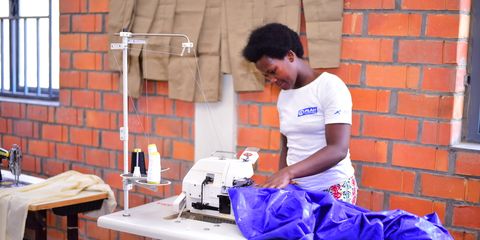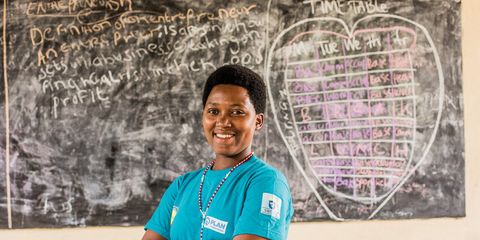Young women thrive in green jobs
In today’s dynamic landscape of employment, young women like Alice, aged 22, are forging unconventional paths to success. Her experience is a compelling narrative of triumph as she thrives as a flourishing agripreneur.

After kickstarting her agriculture business, Alice today stands as a beacon among young women vegetable farmers. Photo credit: Plan International.
Alice’s story began in 2019 when, faced with job rejections after completing her secondary studies, she decided to embark on agriculture with a modest farm provided by her father.
Armed with determination and a handful tomatoes, she kicked off with creating a tomato nursery.
After kickstarting her agriculture business, Alice today stands as a beacon among female vegetable farmers, specialising in cabbages, vegetables, onions and tomatoes for local markets.
To further her agricultural knowledge Alice joined The Future is Green! Promoting Youth Agripreneurship in Rwanda Project. This initiative hosted entrepreneurship skills and knowledge training, that Alice has used to revolutionise her approach to farming.
Alice said, “Equipping young women with green skills empowers them to compete in the labour markets.”
She continued, “The technical training’s outcomes not only expanded my agricultural know-how, but also fuelled my future ambition to think big and even beyond.”
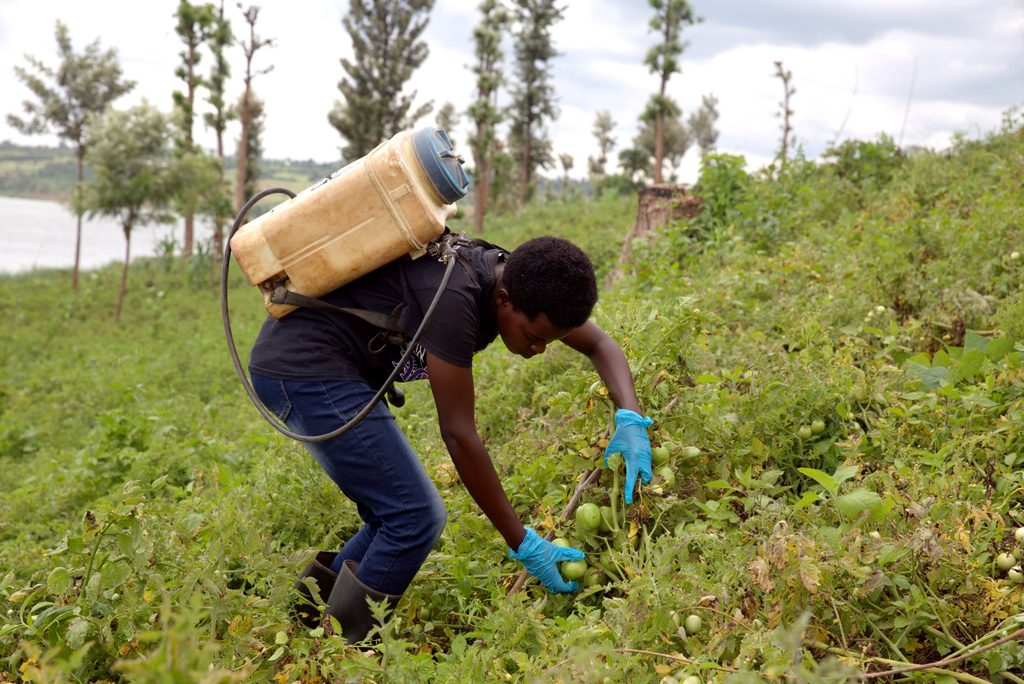
A budding agricultural business
Through application of her entrepreneurial approach and agripreneurship skills, Alice achieved a remarkable onion harvest, generating a revenue of Rwf 2,000,000. With this capital, she bought a cow worth Rwf 400,000.
Beyond meeting her basic needs, Alice manages to save Rwf 20,000 per week, ensuring a sustainable financial future.
Currently, she leases 2 farms, with a rental fee of Rwf 170,000 for each harvesting season, 1 occurring from May to September, and another from October to February.
“Equipping young women with green skills empowers them to compete in the labour markets.”
Alice
Through applying her agripreneurship acquired skills, Alice achieved a remarkable onion harvest, generating a revenue of Rwf 2,000,000. With this capital, she bought a cow worth Rwf 400,000.
Beyond meeting her basic needs, Alice manages to save Rwf 20,000 per week, ensuring a sustainable financial future.
Currently, she leases two farms, with a rental fee of Rwf 170,000 for each harvesting season, one occurring from May to September, and another from October to February.
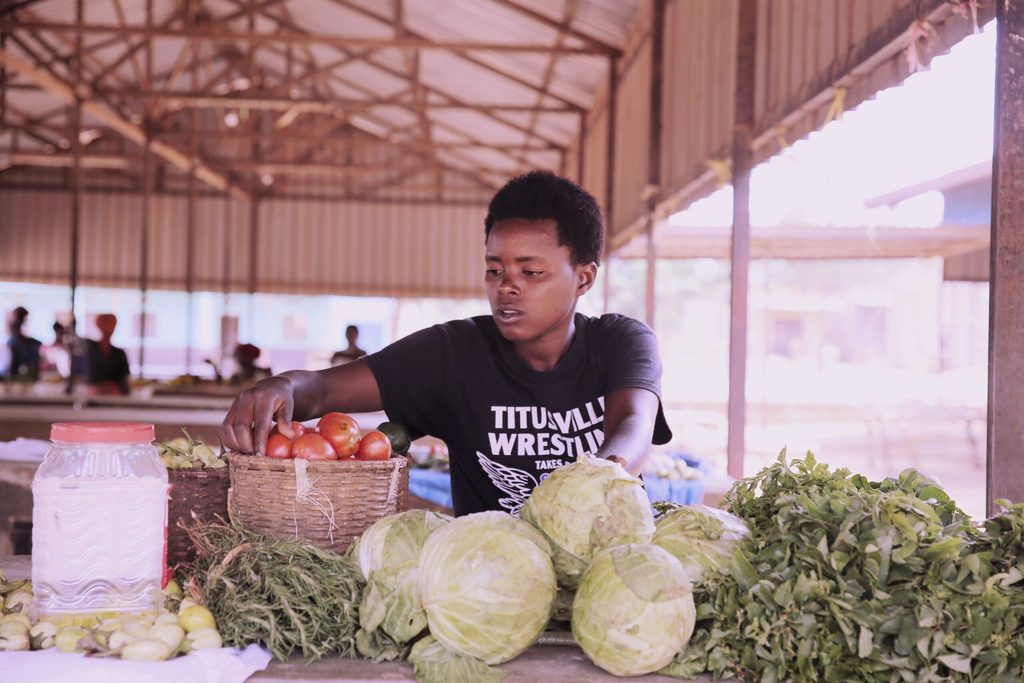
Her peer, Florida, 25, emphasised: “entrepreneurship skills generally play the crucial role to elevate socio-economic status for young women. We are happy for such achievements.”
Through hands-on training, these young women acquired agripreneurship skills, mainly on the adaptation of modern agriculture techniques such as application of fertilisers, utilisation of irrigation, among others.
Additionally, they acquired training in value chain analysis, labour market analysis, as well as safeguarding, and the prevention of sexual harassment, exploitation and abuse to pave the way for a brighter future.
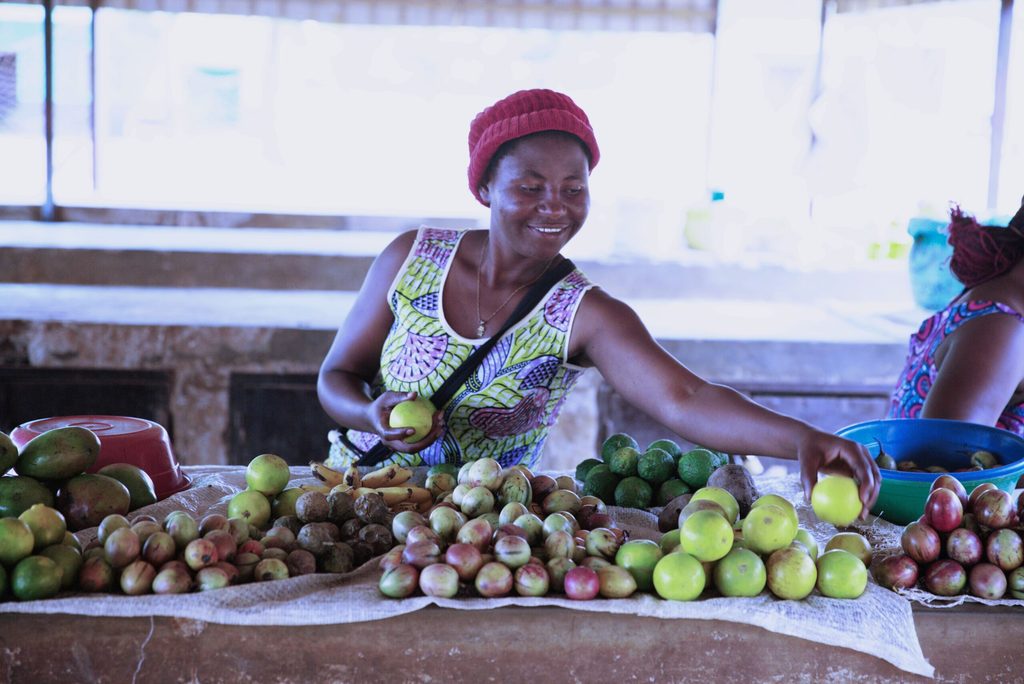
Fostering Youth Economic Empowerment through Entrepreneurship Skills
Skills Development and Employment Promotion Among Youth Project Manager at Plan International Rwanda, Delphine Mutoni, explains that this project tends to elevate youth economic empowerment by providing opportunities for skills development leading to decent work.
“The project, at first hand, will remove barriers that prevent vulnerable youth, especially girls and young women, from participating in the labour market. It helps them create opportunities to acquire the skills they need to succeed in life and make a decent living,” she said.
The Future is Green! Promoting Youth Agri-Preneurship in Rwanda Project aims to empower and economically integrate rural youth, especially young women, into the world of agriculture.
The project works with local services to provide and improve market-driven agriculture and entrepreneurship training, that is gender-responsive and youth-friendly, and creates opportunities for youth employment.
It also creates jobs through enhanced enterprise development, inclusive financial services and access to markets, while supporting community environments for youth engagement in the promotion of gender inclusive employment and climate smart solutions in agriculture.
The project is implemented in Nyaruguru, Bugesera and Gatsibo districts by Plan International Rwanda in partnership with the African Evangelistic Enteprise and Inkomoko Entrepreneur Development.
Its reach leads to 900 youth, with 10 technical vocational educational training centres and 10 farmers cooperatives, comprising 60% female youth, and 40% male youth.
Categories: Skills and work
